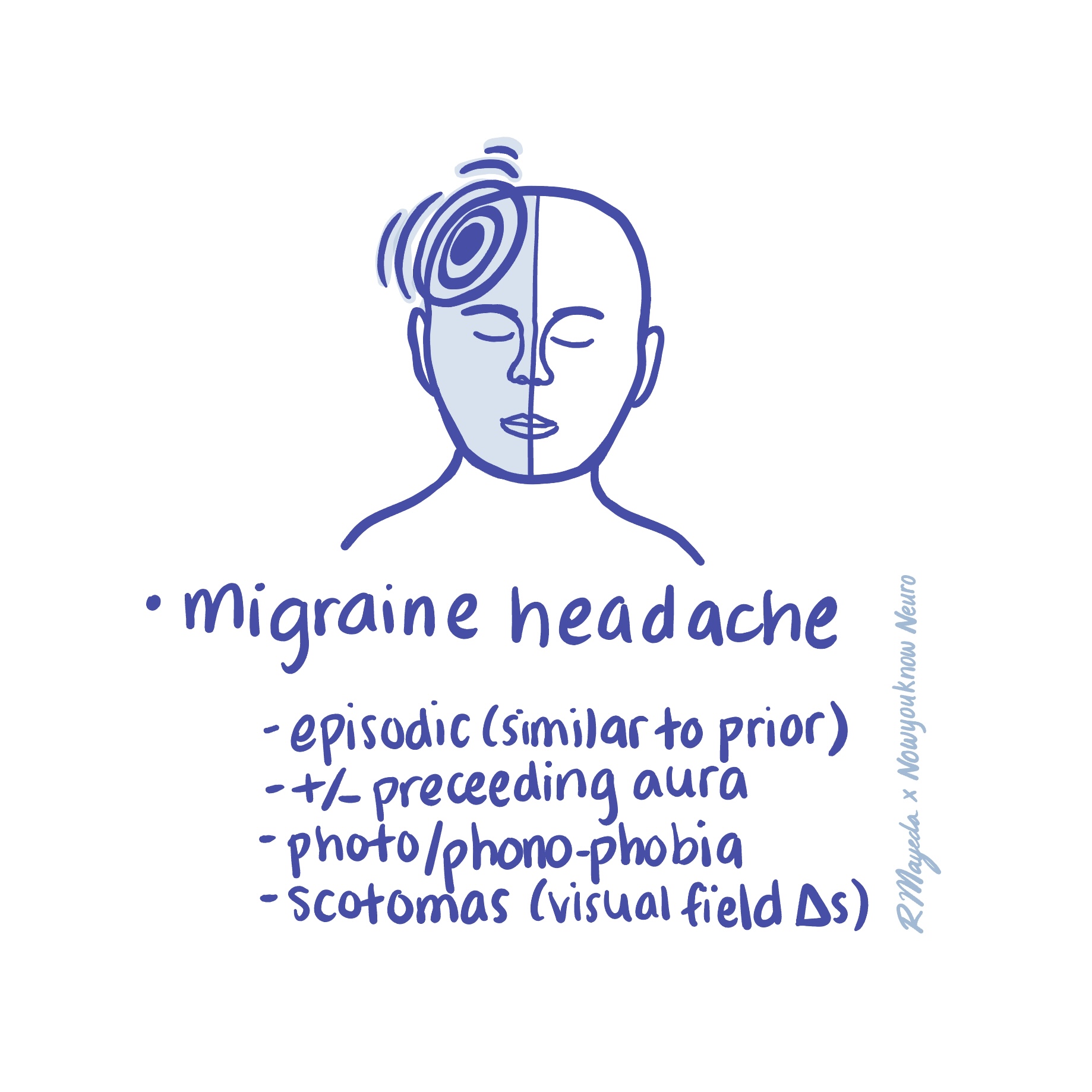Today, we’re diving headfirst (pun intended) into the world of migraine prevention. We previously published a Newsletter about the landmark publication for erenumab, the first calcitonin-gene-related peptide (CGRP) antagonist approved by the FDA for migraine headaches1. Since then, there have been an explosion of CGRP-related therapies for migraines as well as other headache disorders. We choose to focus this publication on fremanezumab, and explain why this CGRP-related therapy in particular justifies its own Newsletter.
The “Fremanezumab for the Preventive Treatment of Chronic Migraine” trial published in 2017 was a randomized, double-blind, placebo-controlled, parallel-group phase 3 trial that recruited 1,130 chronic migraineurs across 132 international sites. Participants received either quarterly doses (675 mg at baseline) or monthly doses (675 mg at baseline, then 225 mg at weeks 4 and 8) of fremanezumab or placebo. The study’s endpoint was the change in average headache days per month over 12 weeks.
Almost 41% of the monthly treatment group and 38% of the quarterly treatment group reported at least a 50% reduction in headache days, compared to 18% of patients in the placebo group.In another way to look at the data, fremanezumab reduced headache days by 4.3 and 4.6 days per month in the quarterly and monthly dosing regimens, respectively, compared to 2.5 days for placebo (p<0.001). The treatment was well-tolerated, with common side effects being injection-site reactions. There was also a 1% risk of elevated liver transaminases that resolved with medication discontinuation.
This landmark study on Fremanezumab represents a significant breakthrough for several reasons. Firstly, it introduced a novel preventive treatment option for chronic migraine sufferers, addressing an unmet need in a patient population that often struggles with traditional therapies. Secondly, the flexible dosing options (monthly or quarterly) provided by fremanezumab opened up new possibilities for personalized treatment strategies, potentially improving patient adherence and quality of life. Lastly, the favorable safety profile observed in the trial suggested that fremanezumab could be a well-tolerated long-term treatment option for chronic migraine patients.
Several studies have been published since 2017 that further showcase the value of fremanezumab. A long-term study by Goadsby et al. (2020) demonstrated sustained efficacy and safety of fremanezumab over 12 months, providing crucial data on its long-term use. Furthermore, Silberstein et al. (2020) explored Fremanezumab’s impact on medication overuse in chronic migraine patients, revealing its potential to reduce the use of acute headache medications. Lastly, a recent Japanese study found that Fremanezumab is a cost-effective alternative to the standard of care from a pharmacoeconomic perspective, further solidifying its place as a landmark development in the field of neurology and migraine management.
By the end of this newsletter, you might just find yourself with fewer headaches – both literally and figuratively. Fremanezumab offers a significant reduction in headache days for chronic migraine sufferers, presenting an effective preventive option with a favorable safety profile. This therapy also offers the unique advantages of personalized dosing and improved patient adherence due to less frequent dosing. Every patient should have the option of personalized, less frequent dosing compared to available alternatives for chronic migraine
References:
- Reuter U, Goadsby PJ, Lanteri-Minet M, Wen S, Hours-Zesiger P, Ferrari MD, Klatt J. Efficacy and tolerability of erenumab in patients with episodic migraine in whom two-to-four previous preventive treatments were unsuccessful: a randomised, double-blind, placebo-controlled, phase 3b study. Lancet. 2018 Nov 24;392(10161):2280-2287. Doi: 10.1016/S0140-6736(18)32534-0. Epub 2018 Oct 22. PMID: 30360965.
- Silberstein SD, Dodick DW, Bigal ME, et al. Fremanezumab for the Preventive Treatment of Chronic Migraine. N Engl J Med [online serial]. 2017;377:2113–2122. Accessed at: http://www.ncbi.nlm.nih.gov/pubmed/29171818.
- Silberstein SD, Cohen JM, Seminerio MJ, et al. The impact of fremanezumab on medication overuse in patients with chronic migraine. J Headache Pain. 2020;21(1):114. doi:10.1186/s10194-020-01173-8
- Goadsby PJ, Silberstein SD, Yeung PP, et al. Long-term safety, tolerability, and efficacy of fremanezumab in migraine: A randomized study. Neurology. 2020;95(18):e2487-e2499. doi:10.1212/WNL.0000000000010600
- Takeshima T, Sakai F, Wang X, et al. Cost Effectiveness of Fremanezumab in Episodic and Chronic Migraine Patients from a Japanese Healthcare Perspective. Pharmacoeconomics [online serial]. 2024;42:811–822. Accessed at: http://www.ncbi.nlm.nih.gov/pubmed/38771521.



